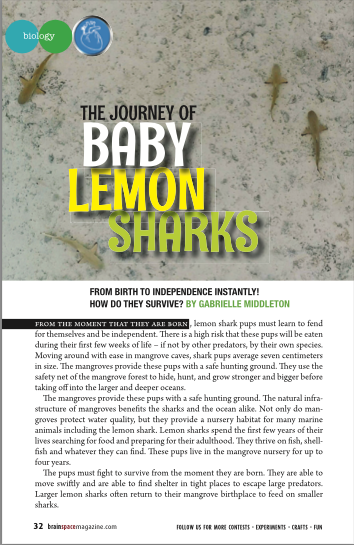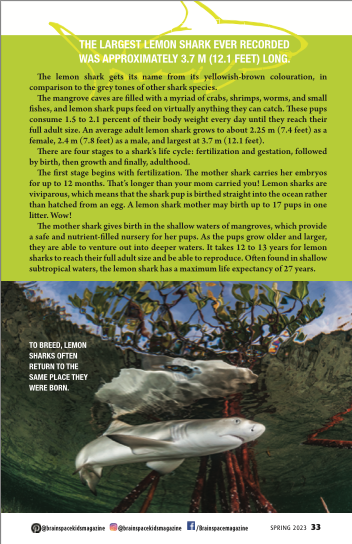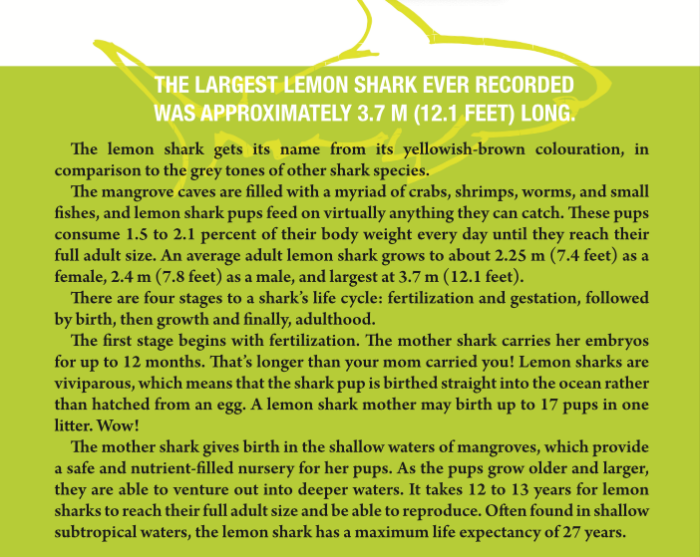


From the moment that they are born, lemon shark pups must learn to fend for themselves and be independent. There is a high risk that these pups will be eaten during their first few weeks of life – if not by other predators, by their own species. Moving around with ease in mangrove caves, shark pups average seven centimeters in size. The mangroves provide these pups with a safe hunting ground, They use the safety net of the mangrove forest to hide, hunt, and grow stronger and bigger before taking off into the larger and deeper oceans.
.
The mangroves provide these pups with a safe hunting ground. The natural infrastructure of mangroves benefits the sharks and the ocean alike. Not only do mangroves protect water quality, but they provide a nursery habitat for many marine animals including the lemon shark. Lemon sharks spend the first few years of their lives searching for food and preparing for their adulthood. They thrive on fish, shellfish and whatever they can find. These pups live in the mangrove nursery for up to four years.
.
The pups must fight to survive from the moment they are born. They are able to move swiftly and are able to find shelter in tight places to escape large predators. Larger lemon sharks often return to their mangrove birthplace to feed on smaller sharks.

